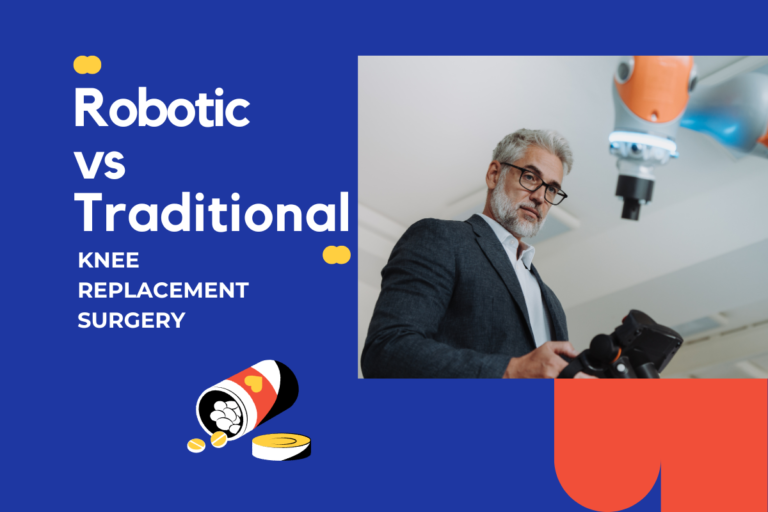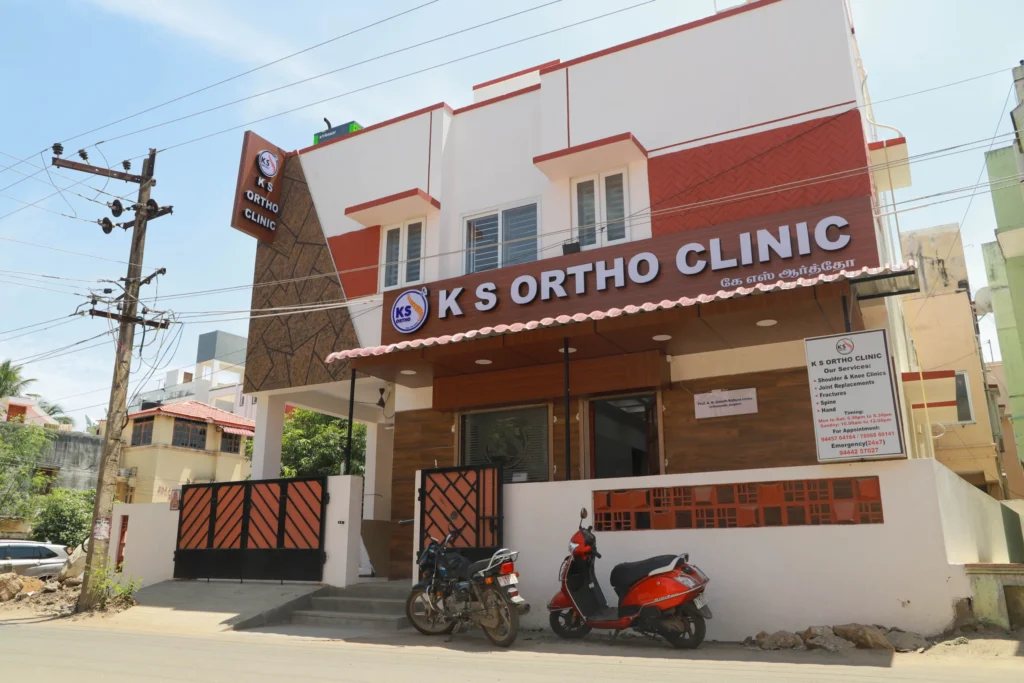Knee Replacement Surgery: Types & Treatment
Knee pain and mobility issues can significantly affect one’s quality of life, making even the simplest tasks challenging. For those suffering from chronic knee problems, knee replacement surgery offers a path to a pain-free and active lifestyle. This article provides a comprehensive guide to knee replacement surgery, focusing on its types, causes, benefits, and recovery. If you’re considering treatment or searching for the best ortho clinic in Madipakkam, read on to learn more.
What is Knee Replacement Surgery?
Knee replacement surgery, also known as knee arthroplasty, involves replacing damaged or diseased parts of the knee joint with artificial implants. This procedure aims to relieve pain, restore function, and improve the overall quality of life for individuals suffering from severe knee issues.
Who Needs Knee Replacement Surgery?
Knee replacement is recommended for individuals with:
- Severe arthritis (osteoarthritis, rheumatoid arthritis, or post-traumatic arthritis).
- Chronic pain that limits daily activities.
- Significant knee joint damage due to injury or degenerative conditions.
For expert diagnosis, visit Dr. Sarath Babu Ortho Clinic Madipakkam, a top-rated ortho clinic near you.
Types of Knee Replacement Surgery
Depending on the severity of the condition and the areas affected, there are four main types of knee replacement surgery:
1. Total Knee Replacement (TKR):
- Involves replacing the entire knee joint.
- Suitable for patients with severe joint damage.
2. Partial Knee Replacement (PKR):
- Only the damaged part of the knee is replaced.
- Recommended for patients with damage confined to one part of the knee.
3. Kneecap Replacement (Patellofemoral Arthroplasty):
- Focuses on replacing the kneecap and its surrounding grooves.
- Ideal for localized arthritis affecting the kneecap.
4. Complex or Revision Knee Replacement:
- Performed to correct previous knee replacements or severe deformities.
- Typically more extensive and requires specialized expertise.
At the best ortho clinic in Madipakkam, patients receive personalized advice to determine the most suitable surgical option.
Causes Leading to Knee Replacement Surgery
The most common causes that necessitate knee replacement surgery include:
- Osteoarthritis: A degenerative condition causing cartilage wear and tear over time.
- Rheumatoid Arthritis: An autoimmune disorder leading to inflammation and joint damage.
- Post-Traumatic Arthritis: Arthritis that develops after an injury to the knee joint.
- Severe Knee Injuries: Fractures or ligament damage that compromise knee function.
- Bone Disorders: Conditions like avascular necrosis, where bone tissue dies due to lack of blood supply.
Benefits of Knee Replacement Surgery
Knee replacement surgery offers several benefits that can transform a patient’s life:
- Relief from Chronic Pain: Improved comfort in day-to-day activities.
- Improved Mobility: Ability to walk, climb stairs, and engage in recreational activities.
- Enhanced Quality of Life: Greater independence and participation in social activities.
- Long-Lasting Results: Modern implants can last 15-20 years or longer with proper care.
The Knee Replacement Surgery Process
Pre-Surgery Preparations:
- Medical Evaluations: Blood tests, imaging (X-rays, MRI), and overall health assessments.
- Lifestyle Adjustments: Weight management, strengthening exercises, and quitting smoking.
- Choosing a Surgeon: Opt for experienced professionals at the top-rated ortho clinic in Madipakkam like Dr. Sarath Babu.
During Surgery:
- Procedure typically lasts 1-2 hours.
- Damaged parts of the joint are removed and replaced with prosthetic components.
Post-Surgery Care:
- Physical Therapy: Crucial for regaining strength and mobility.
- Pain Management: Medications and techniques to reduce discomfort.
- Preventive Care: Regular monitoring to avoid complications like blood clots.
Recovery After Knee Replacement Surgery
Recovery is a gradual process that requires dedication and support. Here’s a typical timeline:
- Week 1: Pain management, light physiotherapy, and assisted walking.
- Weeks 2-4: Increased mobility and exercises to strengthen the knee.
- Months 2-3: Return to normal activities like walking or light household chores.
- Long-Term Care: Regular follow-ups at Dr. Sarath Babu Ortho Clinic Madipakkam ensure sustained improvement.
Tips for Faster Recovery:
- Follow your physiotherapist’s instructions diligently.
- Maintain a balanced diet rich in protein and calcium.
- Stay active within prescribed limits to prevent stiffness.
Frequently Asked Questions
1. Is robotic knee surgery painful?
Robotic surgery is minimally invasive, leading to less post-operative pain than traditional methods.
2. How do I find the best ortho clinic near me?
Search for clinics with experienced doctors, modern facilities, and positive reviews, such as Top Rated Ortho Clinic Madipakkam.
3. Is robotic knee replacement covered by insurance?
Coverage depends on your insurance provider. Check with your clinic for assistance with claims.

